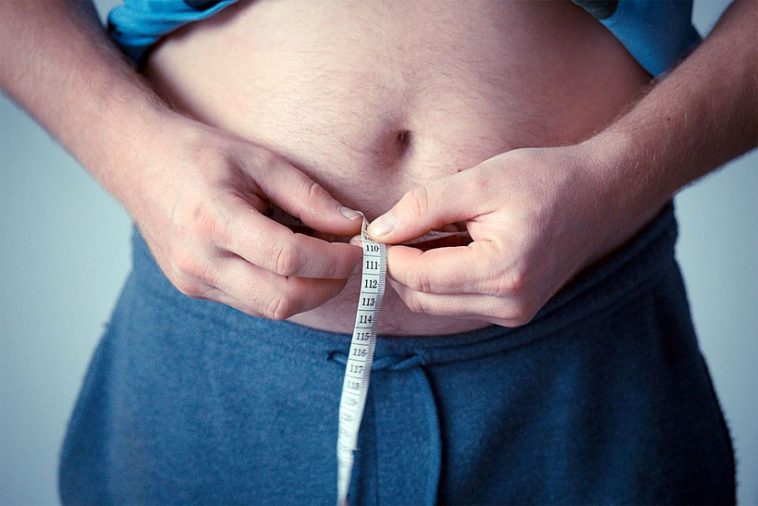- Like
- SHARE
- Digg
- Del
- Tumblr
- VKontakte
- Flattr
- Buffer
- Love This
- Save
- Odnoklassniki
- Meneame
- Blogger
- Amazon
- Yahoo Mail
- Gmail
- AOL
- Newsvine
- HackerNews
- Evernote
- MySpace
- Mail.ru
- Viadeo
- Line
- Comments
- Yummly
- SMS
- Viber
- Telegram
- JOIN
- Skype
- Facebook Messenger
- Kakao
- LiveJournal
- Yammer
- Edgar
- Fintel
- Mix
- Instapaper
- Copy Link
Introduction

You may have heard the buzz surrounding the positive or negative effects of traditional fasting or intermittent fasting, and maybe you have been thinking about trying one out.
Well, I can tell you from a pure weight loss perspective, there’s nothing special about fasting or intermittent fasting.
The truth is whether you choose to eat eight small meals or one big meal daily, what determines weight loss is the total amount of calories consumed daily.
However, that doesn’t mean that traditional fasting or intermittent fasting isn’t effective for some individuals when it comes to weight loss, etc.
What is Fasting?
Fasting is defined as abstaining from all or some foods and drinks for a certain period of time. Some studies show that fasting can cause weight loss and improve health in many ways.
Despite its recent growth in popularity, fasting has been around for centuries. It has even played a significant role in various religions and cultures.
Traditional fasting is usually performed over the course of days or even weeks, and in some more extreme cases, a month or more (not recommended).
Alternatively, intermittent fasting is a newer type of fast. It’s essentially a meal frequency protocol where an individual has periods of fasting followed by periods of eating.
Benefits of Fasting
If you have never fasted, perhaps because you aren’t sure whether it is good for your health or not, this article gives you some of the potential benefits of fasting. Continue reading to learn more.
It helps you lose weight
If you are looking to shedding off some weight, fasting can be one of the quickest and safest ways. You can try water fasting to help you lose weight. When you eat, the body burns the food you have eaten to produce energy for your body. Any extra food that’s not used to produce energy is converted into fats and stored in the body to be used in the future. This is what can make you add weight. When you fast, there is less food to be converted into energy, and now the body starts to convert the stored fats into energy. Fasting also helps to burn fat cells without affecting the muscle tissue.
It promotes blood sugar level
Fasting can achieve this by reducing insulin resistance in the body. Studies have shown that fasting can improve blood sugar control, which can be beneficial to people who have diabetes. In fact, one study showed that short-term intermittent fasting significantly reduced the blood sugar levels. Alternative-day fasting and intermittent fasting can limit your calorie intake and reduce insulin resistance. A decrease in your insulin resistance can increase the body’s sensitivity to insulin, enabling it to transport glucose from the bloodstream to the cells efficiently.
It enhances detoxification
Fasting also promotes the body’s detoxification. Most of the processed foods that people eat have lots of additives. Some of these additives are toxic to the body. When these foods are digested and absorbed in the body, the toxins are also absorbed in the body and stored in fat deposits.
When you fast, the brain treats food absence as a threat and reacts by stimulating the adaptive stress responses to help deal with the situation. The brain also starts to consider how it will provide the body with energy during this fasting period. This makes the body to turn to the stored fats in different parts of the body to produce energy. As the fat deposits are burnt down, the toxins stored with the fats are also released. The toxins are eliminated from the body through the help of the kidneys, liver, and other organs, hence leaving your body toxins-free.
Fasting boosts your immune system
Fasting, especially the intermittent fasting, can improve your immune system since it regulates the inflammatory conditions in the body and decreases the free radical damage. Have you ever wondered why animals stop eating when they get sick? Well, this is a natural instinct that helps them reduce stress on their internal system so that their bodies can fight off the disease. Fasting triggers the release of toxins from the body and the burning of fats, hence enhancing the body’s ability to fight diseases.
What is Intermittent Fasting?
Intermittent fasting is a meal frequency protocol where an individual has periods of fasting followed by periods of eating.
There are several different popular fasting protocols varying from sixteen hour fasts with an eight hour eating periods to full twenty-four hour whole day fasts.
Fasting supposedly has numerous benefits such as increased longevity, increased growth hormone levels, reduced belly fat, increased cognitive health and function, neuro-protection, increased insulin sensitivity, etc.
I say supposedly because not all these benefits have been proven beyond a shadow of a doubt in humans. However, just because it isn’t proven doesn’t necessarily make it false as the benefits from fasting have yet to be disproven as well.
Intermittent Fasting Tips and Guidelines
So how can intermittent fasting help you lose weight? Simple, by limiting your window of food consumption you’ll be more likely to eat less.
Weight Loss
For those who prefer to eat six-eight small meals every two-three hours, intermittent fasting is not for you. On the other hand, if you have never been a breakfast person or you tend to eat one large meal a day, intermittent fasting may be for you. If you are not a breakfast eater, then chances are a sixteen hour fast followed by an eight hour eating period would be a match made in heaven. It’s a simple as finishing your last meal around 8pm, skipping breakfast, and then consuming your lunch around noon. If you tend to eat one large meal daily, then a twenty hour fast followed by a four hour eating window may be more your style.
Assuming you’re sticking to whole foods such as lean proteins, legumes, whole grains, fruits, vegetables, and low fat dairy, it should be relatively easy to consume less calories than you burn. However, that’s not a guarantee as some people have a bottomless pit when it comes to food consumption. As always, the types of foods you choose to consume can either make your weight loss endeavor easier or harder. If you choose to break your fast with high calorie low volume foods like potato chips, cakes or pastries, oils, nuts, dried fruit, etc. you’ll have a harder time keeping your caloric intake under the wraps which could make weight loss very difficult. Individuals who crave high calorie foods after a prolonged fast may not find intermittent fasting a viable option for weight loss.
Lifestyle
Depending on your lifestyle, intermittent fasting may be a good fit for you. For many people, time becomes an issue when attempting to make numerous meals daily. If you don’t have time to cook, precook, or meal prep, five to six meals daily then intermittent fasting may be right up your alley. Instead of prepping, cooking, or precooking five to six meals a day, you only have to worry about one or two meals daily. If you’re truly crunched for time, this is more likely to fit your lifestyle.
Hunger and Satisfaction
Yes, there is going to be some hunger when following an intermittent fasting protocol. Hunger during the fasting period which tends to come and go with some stints of hunger worse than others, and some pseudo hunger after your eating period has ended. I bet you’re wondering why you might be hungry after your eating period. I call it pseudo hunger because you aren’t physically hungry, but you are hungry because you can no longer eat and you know it will be another sixteen, twenty, or twenty four hours before you can eat again. Obviously, this is all mental and it will only bother some individuals who decide to fast. On the other hand, there are periods of satisfaction. How often can you say you’re stuffed when following a standard five to six meal a day dieting protocol? Typically after the fast ends and you consume your first meal, you’ll be satisfied for the rest of the day until pseudo hunger kicks in. So how do you fight your fasted induced hunger?
Fight the Hunger
Making it through the fast without gnawing your arm from hunger may be challenge and sitting around thinking about food definitely isn’t the solution. However, there are several things you can do to curb or hold off your hunger.
Drink Plenty of Water – Sometimes hunger is a simple misunderstanding between what is actually going on in your body and what you interpret. What I mean is sometimes as individuals we confuse hunger with thirst. Try drinking plenty of water during your day and you may be surprised at the lack of hunger you experience.
Grab a Cup of Joe – As long as you’re going light on your sugar and cream and not having three plus cups, a cup of coffee does a pretty good job of temporarily blunting hunger.
Be Productive – By staying active and mentally focused on other tasks during your fast, you’ll keep your mind off of food and also discover time tends to go by a little faster when you’re occupied.
The Bottom Line
Fasting and intermittent fasting isn’t the holy grail of weight loss diets, but it can be a means to an end. By limiting your window of food consumption, fasting can definitely help you lose weight.
However, just because you’ve fasted doesn’t mean you can eat whatever and lose weight. At the end of the day, daily caloric intake is what determines weight loss or weight gain.
If you’re thinking about giving fasting or intermittent fasting a try, my suggestion is to start with the lean gains fasting protocol, which can be found here.
Be sure to watch the following video for a motivating intermittent fasting for weight loss success story…
About Julian Brown
JulianBrownTraining.com Julian is the co-owner of The Yard Fitness, an established fitness writer, a professional natural bodybuilder, a fitness & sport nutrition specialist, and a certified personal trainer. He began strength training at the young age of fourteen to improve his sports performance and hasn’t looked back since. Julian is a graduate of Grambling State University, ACE & NASM certified, and he has over a decade of personal experience in strength training.

